It’s theatre month, and musical theatre week. While crowds are flocking to see the international production of Chicago in Wellington, Kiwis trying to make a living in the industry are struggling.
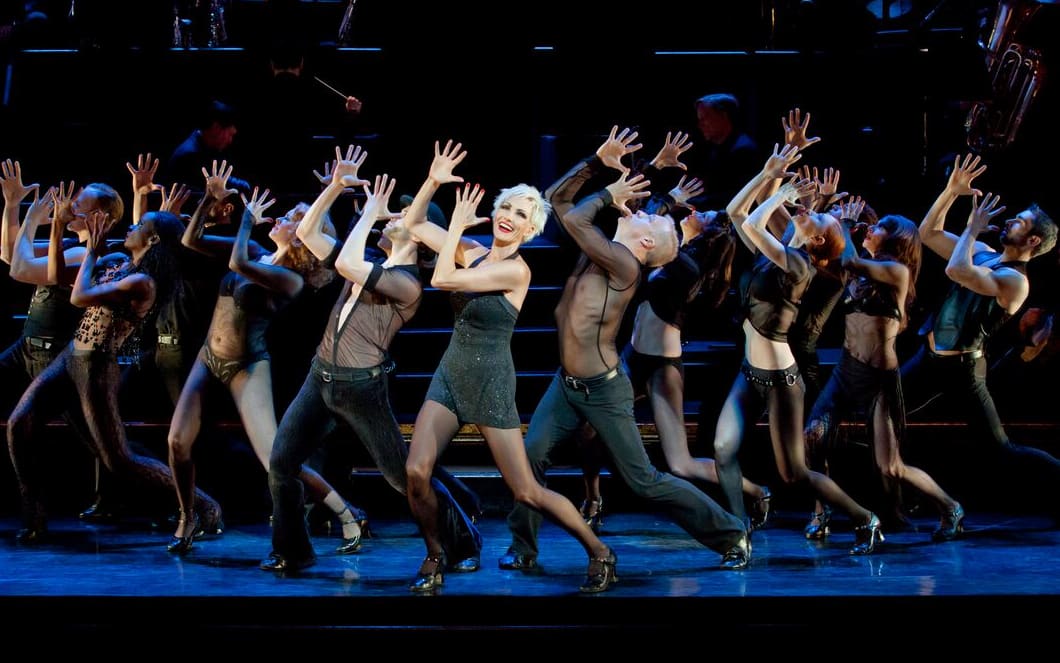
Chicago the Musical Photo: Jeremy Daniel
Chicago is one of the longest running Broadway musicals in history, offering true-life inspired story lines, strong female leads and original Bob Fosse choreography, all complimented by a live on-stage band.
It was brought to New Zealand by Lunchbox Productions – the team behind recent international tours of Singin’ in the Rain, Annie, The Sound of Music and Priscilla Queen of the Desert.
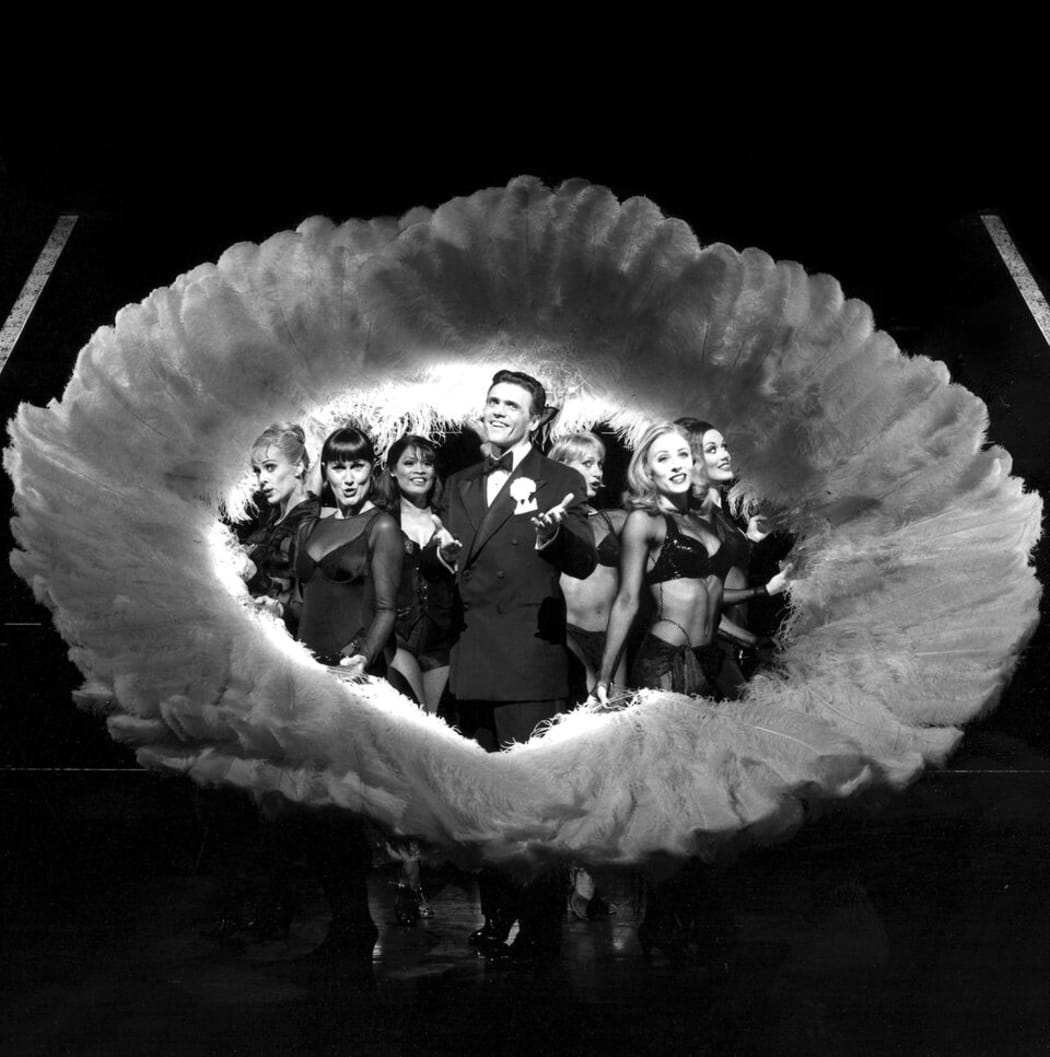
Chicago the Musical Photo: Supplied
The show boasts an international company, who were cast and rehearsed in South Africa, before touring to NZ, China and through parts of Europe.
Not one New Zealand actor takes the stage.
Chicago producer David Ian concedes that by employing exclusively offshore actors, it does take away opportunities for local actors.
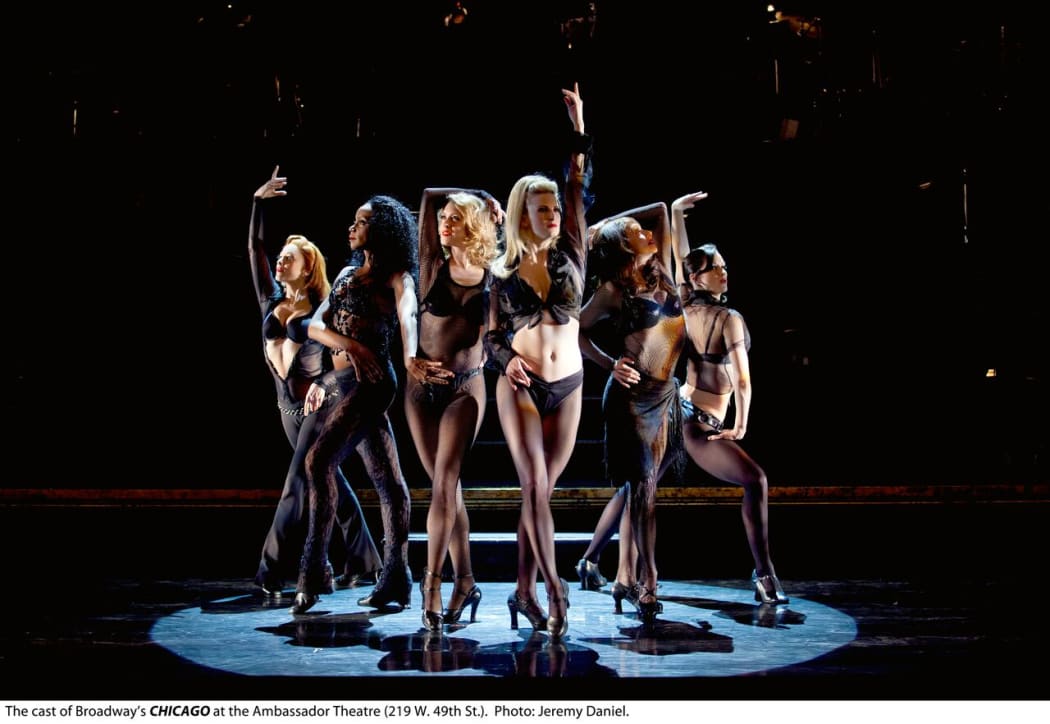
The cast of Chicago the Musical Photo: Jeremy Daniel
He says he’s hoping to change that low representation of Kiwi actors in his tours. “It’s high time we had NZ actors in our shows, next time I might audition this side of the planet,” he says.
In 2016 Lunchbox’s Priscilla producer Garry McQuinn said he was open to the idea of work-shopping local talent, but nothing ever eventuated.
What the law says
New Zealand equity laws mean companies like Lunchbox can bring their large productions here, but struggle to tour countries like Australia who have stronger industrial regulations.
Equity New Zealand – the union for performers in this country – along with other creative guilds and unions, used to have to approve all applications for performing artists wishing to work in New Zealand.
These groups had the right to object or accept applications. But changes to the law prevented that from happening.
Jennifer Ward-Lealand, President of Equity New Zealand, says there were never any objections to musical theatre productions from abroad coming to the country. “Our [very few] objections were only ever for screen performers or when we ascertained that the auditions process was not bona fide,” she says.
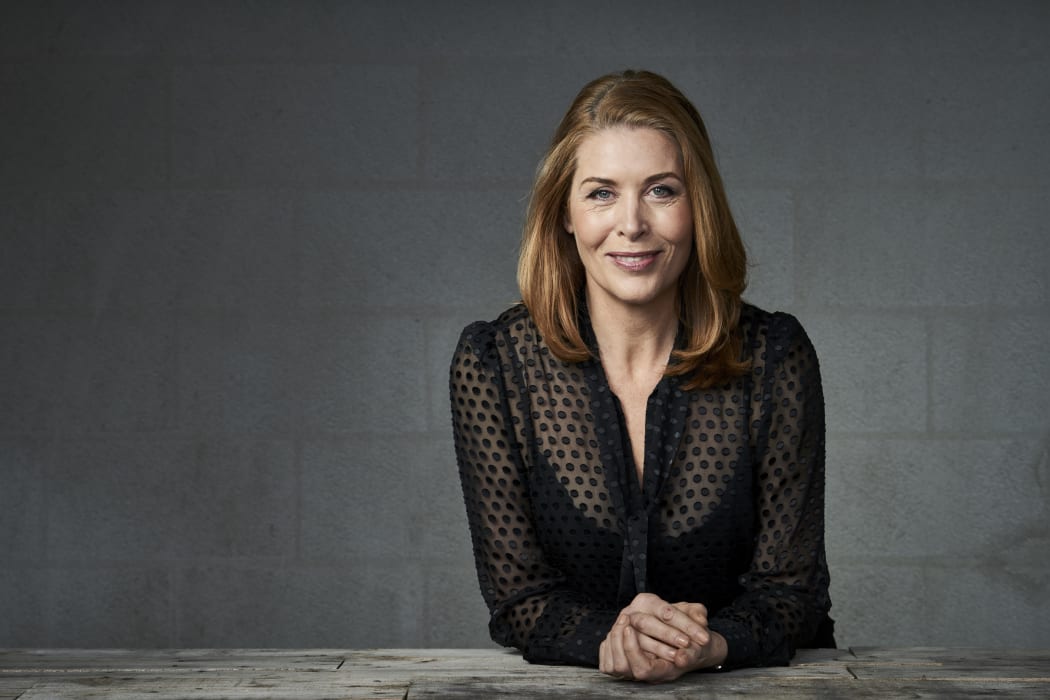
Jennifer Ward-Lealand Photo: supplied
In Australia, the law requires productions to have at least 50 percent of performers of Australian descent. 75 percent of leading roles are also specifically ear-marked for Australians.
According to Immigration New Zealand’s website actors, entertainers and dancers are found on the “skill shortage list”. It is the same for musicians.
That means artists from outside New Zealand with the relevant skills and/or qualifications can be brought in for a role.
Time to give kiwi performers a chance?
Melbourne based Cantabrian composer, lyricist and creator of punk-rock musical That Bloody Woman Luke Di Somma says international producers should give local performers a chance to step up.
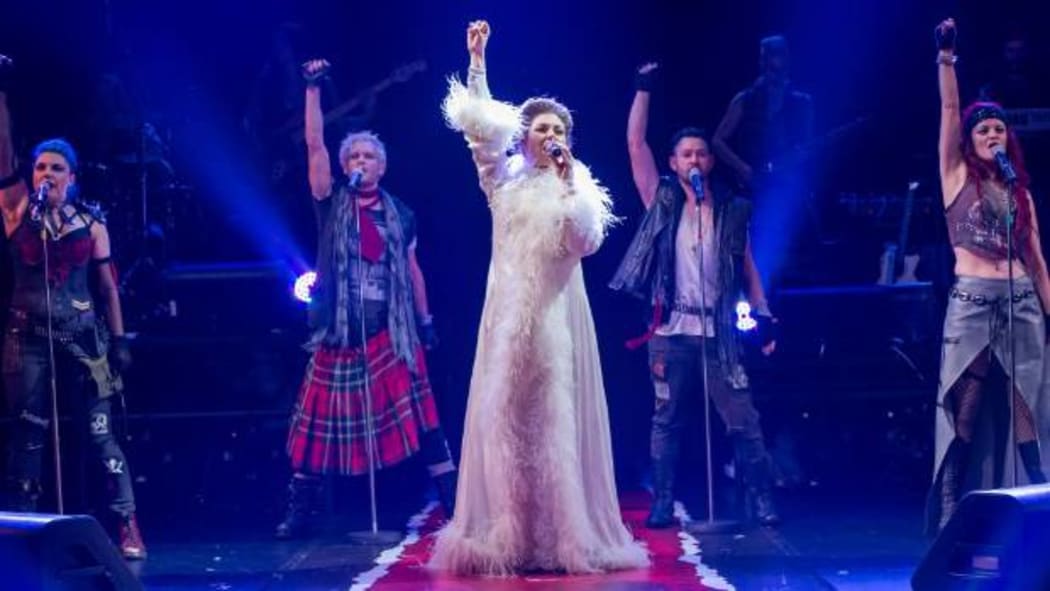
That Bloody Woman Photo: Supplied
“One idea that is sometimes floated is that overseas shows could cast local actors in some of their shows,” he says. “We have some seriously terrific performers in Aotearoa - and producers could save on accommodation and per diems while giving Kiwi performers the chance to be in a top international show that runs for a while. This could really change the game for musical theatre actors in New Zealand.”
Only a handful of professional companies produce musicals each year in Aotearoa, meaning limited opportunities for very few to be paid to perform.
In the next 12 months New Zealand made professional productions will include Jesus Christ Superstar, Hedwig And The Angry Inch (both at The Court Theatre) Shortland St The Musical (Auckland Theatre Company) and Here Lies Love (Silo Theatre).
Actors are paying to perform
Other musicals in this country are usually produced by a consortium – a group of “community” musical theatre companies from around the country who band together to cover the costs associated with touring a production.
Each company provides their own casts and crew, giving local actors an opportunity to perform in a top flight production.
These theatre groups have an opportunity to work together to build sets, create costumes and put on shows that they consider to be world class but Luke Di Somma says they “can vary wildly in quality - can be excellent or dire”.
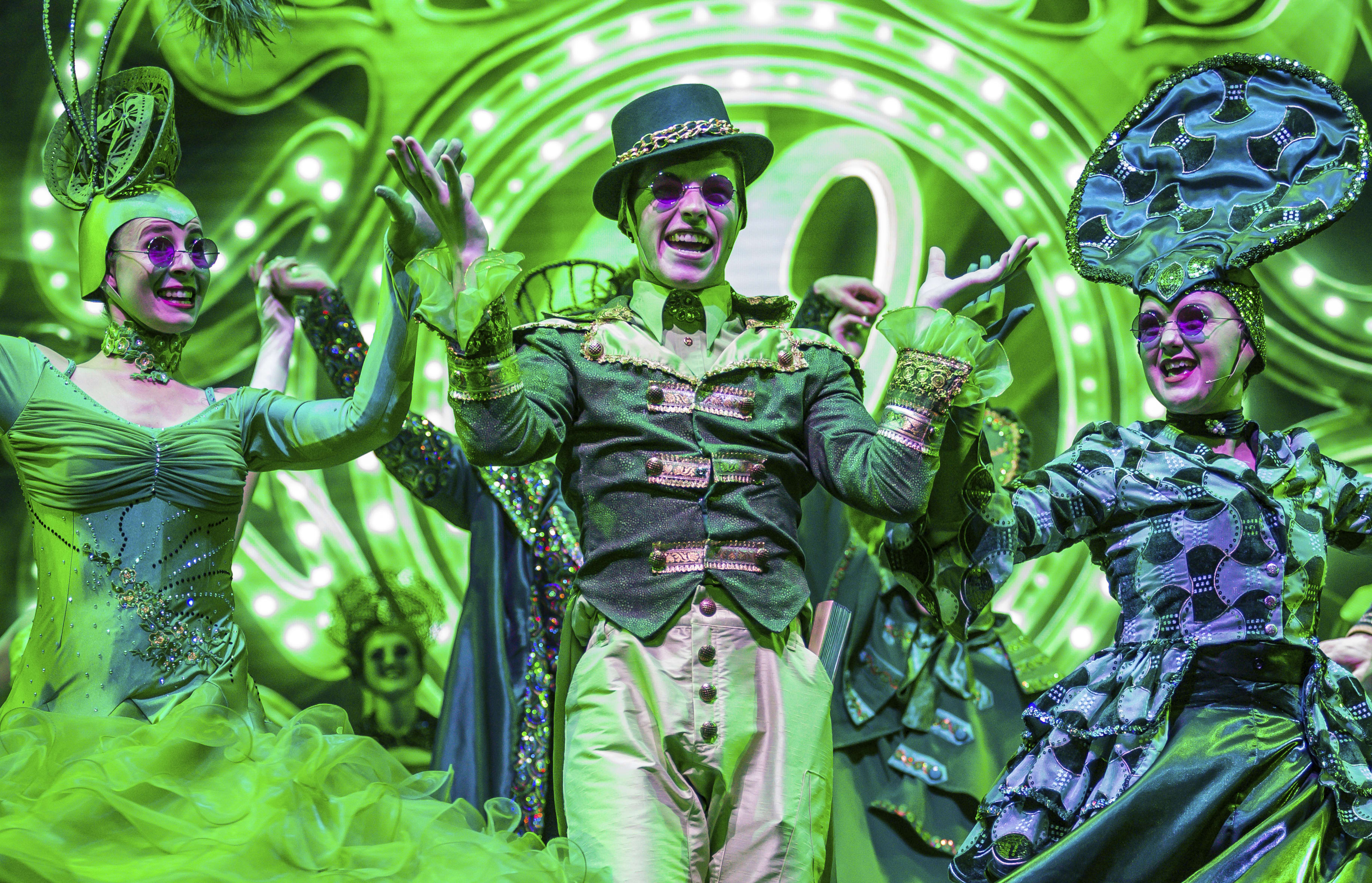
Showbiz Christchurch production of Wicked Photo: Danielle Colvin
All these companies sell tickets and most involved behind the scenes will get paid with musical directors, back stage crew and lighting technicians all getting a fee.
But those out the front, the actors, more often than not, do not.
Musical Theatre New Zealand (MTNZ), the governing body of the art form in this country, says pro-am theatre is worth about $5 million to the local economy every year, from hiring lights to buying fabrics for costume making.
A musical at this level can cost upwards of $250,000, with some in the bigger areas like Auckland, costing more than one million to stage.
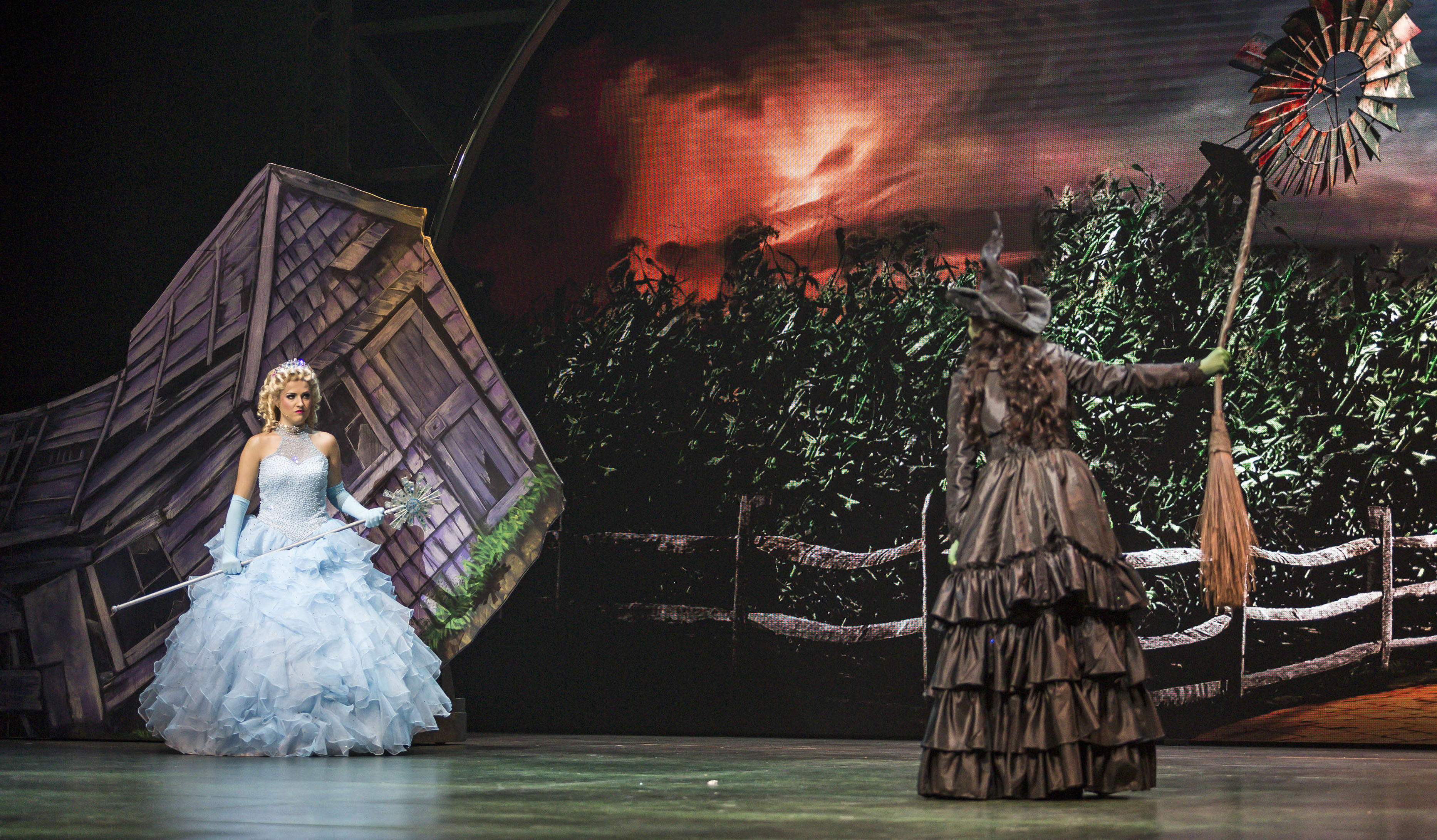
Showbiz Christchurch production of Wicked Photo: Danielle Colvin
Approximately 75 percent of shows at this level make a profit, albeit a small one, according to MTNZ president Daniel Pepperell.
He says lighting and sound people are often paid for their work because audiences can tolerate performers not being perfect, but if a technical issue is to occur that can ruin a show.
MTNZ prefers not to categorise these shows as “amateur” even though actors aren’t getting paid. Instead they are called “community” shows.
Five zones, with 10 to 20 societies in each, make up the musical theatre network around this country. Some societies have 20 members, others upward of 200.
Musical Theatre New Zealand has 6000 members in total; they all pay a subscription, which means sometimes, actors are paying to be on stage.
But Pepperell believes money is not the end game when participating in “community” theatre. “It’s for love,” he says. “50 percent of it is about having the opportunity to be on stage. The other 50 percent is social.”
But professional composer Luke Di Somma says doing it for love is not necessarily the right thing.
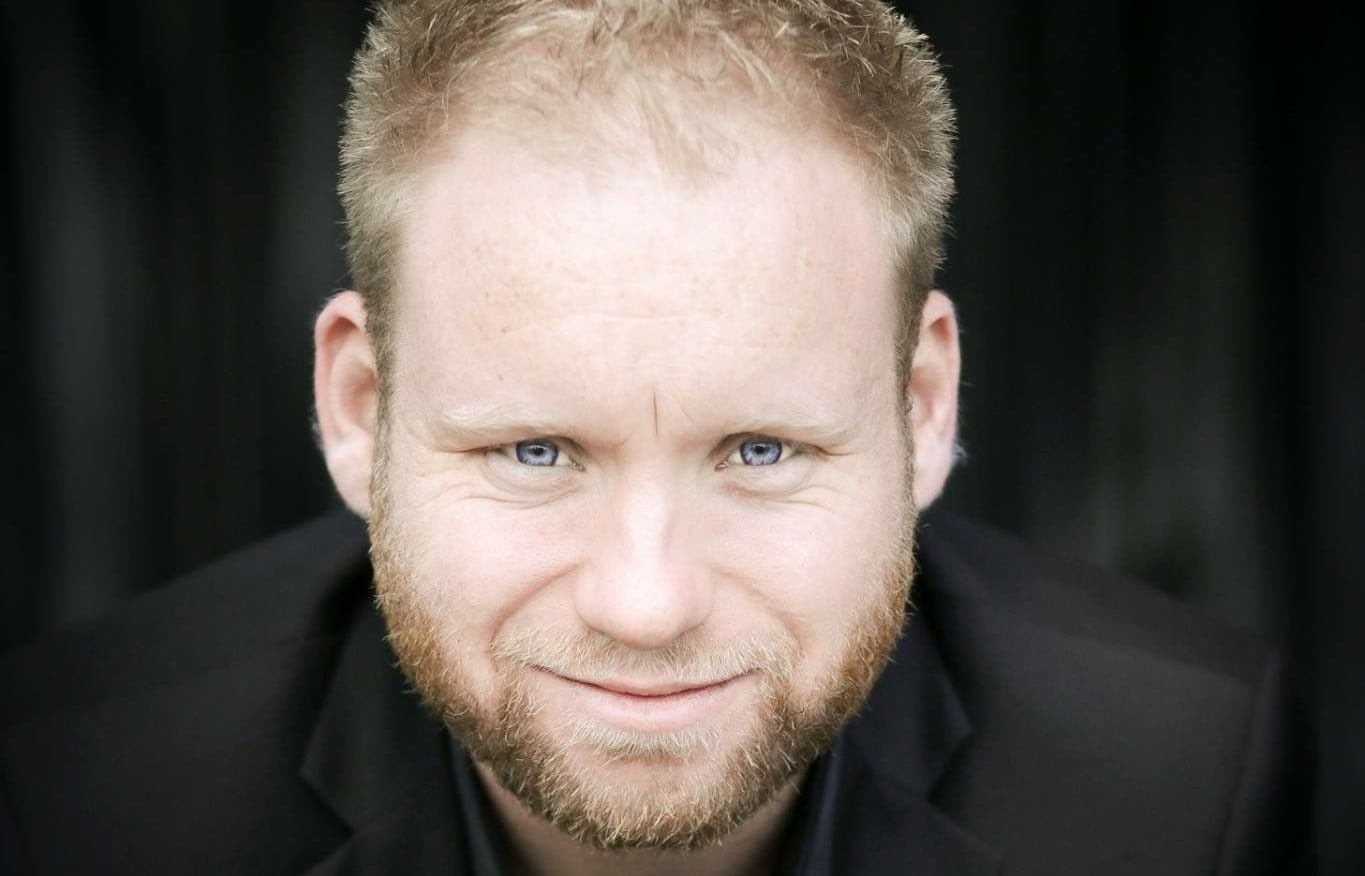
Luke di Somma Photo: supplied
"There is even a scenario in some parts of the country where fully trained actors are doing amateur shows for free to get in with the directors of professional shows,” he says. “I understand this when someone has recently graduated - experience and exposure are important early on - but I find it troubling when actors work for free several years into their career, especially in the event these shows make a profit."
There is a rising trend in these larger “community” productions to pay leading actors, bringing an “awkward co-existence of amateur performers and professional actors” in these shows.
“[It] can lead to both an inconsistency within a production, and consternation as to why some actors are paid and others aren't,” Luke says. “I'm pleased these shows exist, because it's how a lot of the country sees the shows, but I do wish a model existed where these could be produced on a profit-share basis for the trained and/or professional actors who do these shows.”
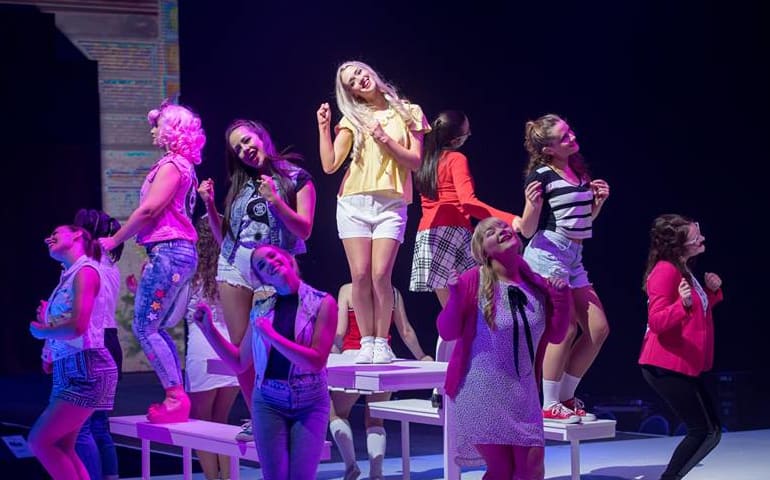
Invercargill Musical Theatre's production of Grease Photo: Facebook - Musical Theatre New Zealand
Jennifer Ward-Lealand agrees. She says there needs for more transparency so audiences know what their ticket prices are going to. “[These shows] are the lifeblood of many communities,” she says. “But what they are seeing are [actors] not getting any remuneration. It’s about making people aware of what it is and that 98 percent of people are working for free.”
She suggests musical theatre organisations should make it clear in their programmes when actors are not getting any fees. “It’s not a professional show. It devalues the work of professionals,” she says.
Solving it from the inside
There is a growing scene of homegrown companies creating and presenting original and new works, allowing professional opportunities to develop.
WITCH Theatre Company in Wellington is one such organisation, presenting fresh international works to a new market.
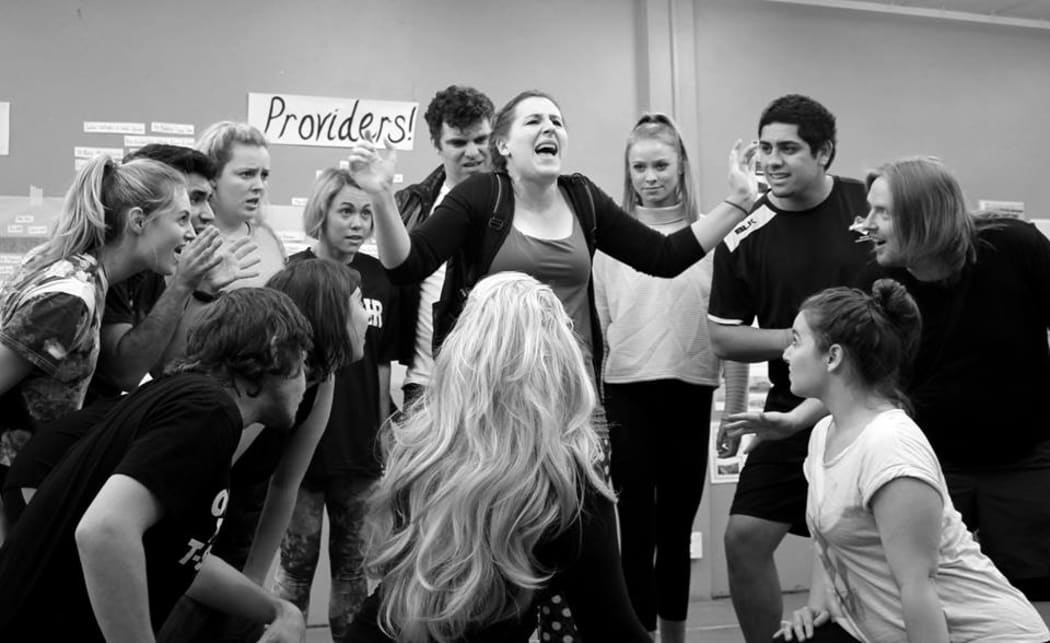
Carrie the Musical Photo: Facebook - Carrie the Musical
WITCH founder, Wellington based Ben Emerson, had personal experience in the local “community” scene, but created his company to bring new musicals to the capital with the theatre professionals involved being paid one day.
WITCH has presented Carrie: the Musical and Spring Awakening in the past 18 months.
Funding grants from local businesses helped launch the company as “official grants or funding rounds” were a lot harder to secure.
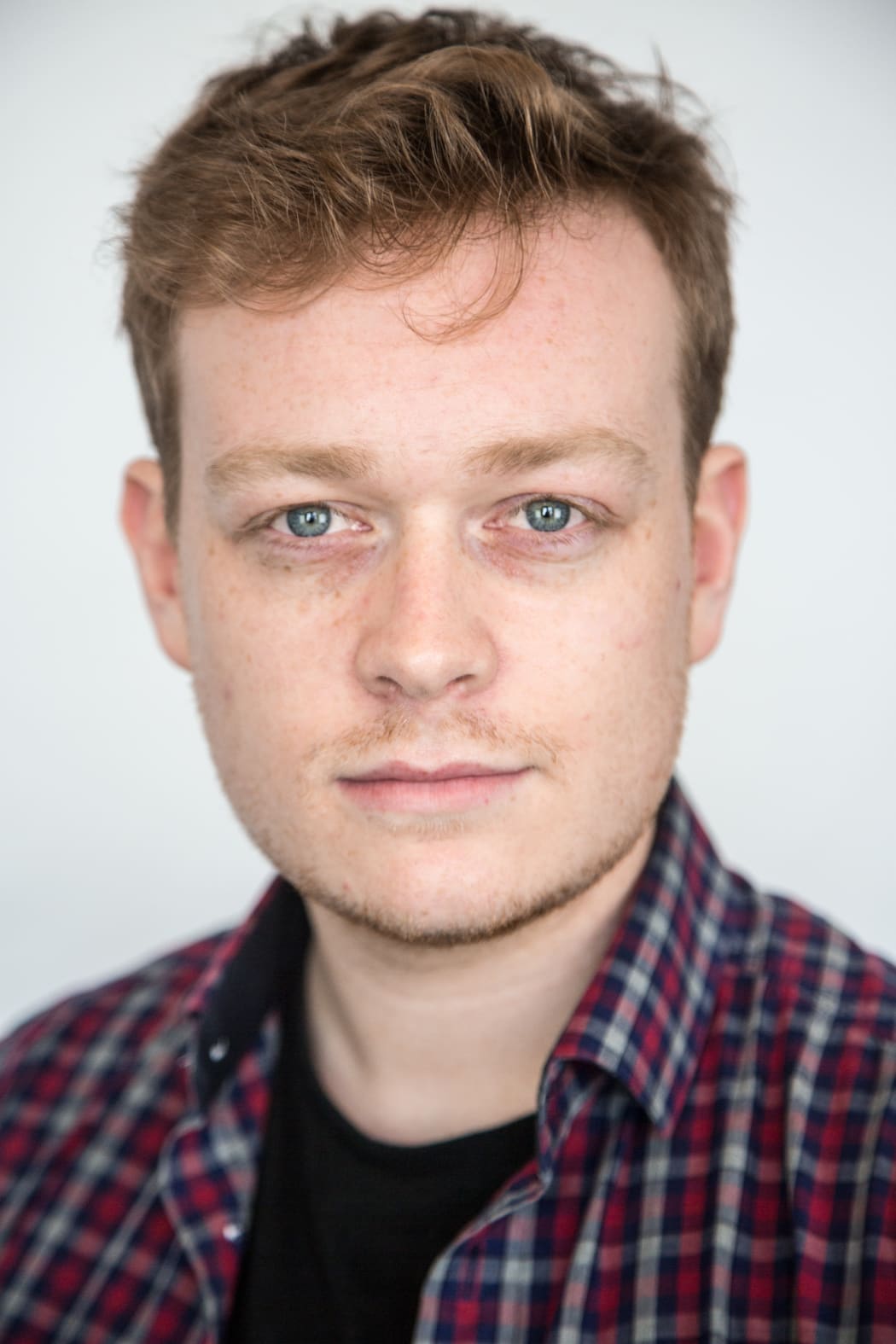
Ben Emerson from WITCH Photo: Supplied
He has also fundraised to secure the rights for shows and rehearsal venues.
“[I wanted to] create a platform and place to create my own opportunities and opportunities for other like minded people with the goal of theatre professionals getting paid for what we do,” he says. “Making your own company - an arts company at that - is a sacrifice, but one that feeds your soul; but it will take up your time, energy and maybe even money. So make sure it's work that you love.”
Funding from Creative New Zealand has helped original Kiwi musical theatre content make it to the stage.
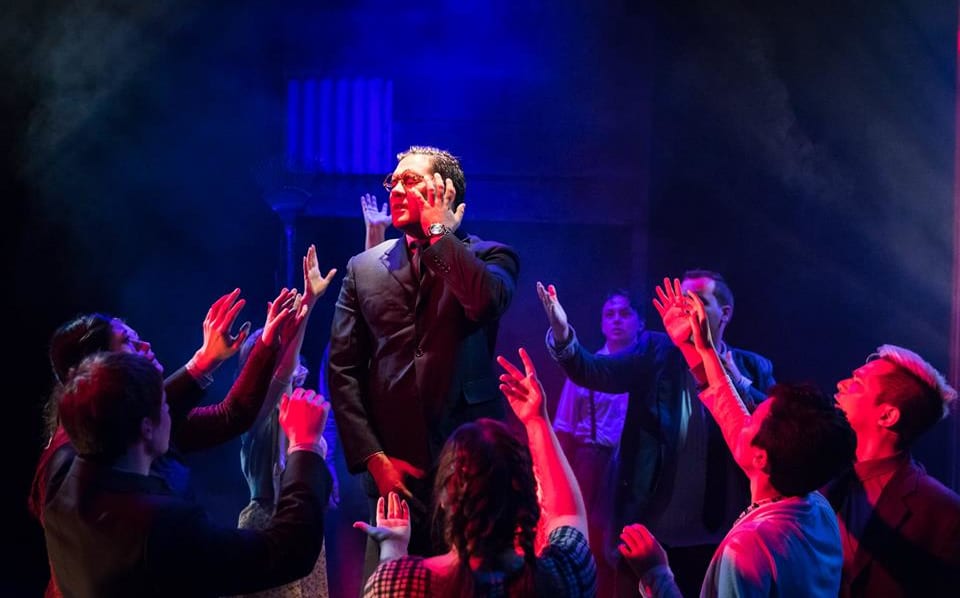
A scene from Spring Awakening Photo: Facebook - Witch
That Bloody Woman received funding from CNZ, and was commissioned by the Christchurch Arts Festival. Other festivals are starting to do the same. It shows there’s an appetite for new work with a New Zealand skew.
Luke Di Somma says access to funding for musicals (and opera) would be made easier if the art form had its own funding stream.
“Whenever I apply for funding for a new project, there is this internal discussion at CNZ about whether it's "music" or "theatre",” he says. “Part of promoting the form is to legitimise it so it doesn't seem like something that awkwardly doesn't quite fit the existing model.”
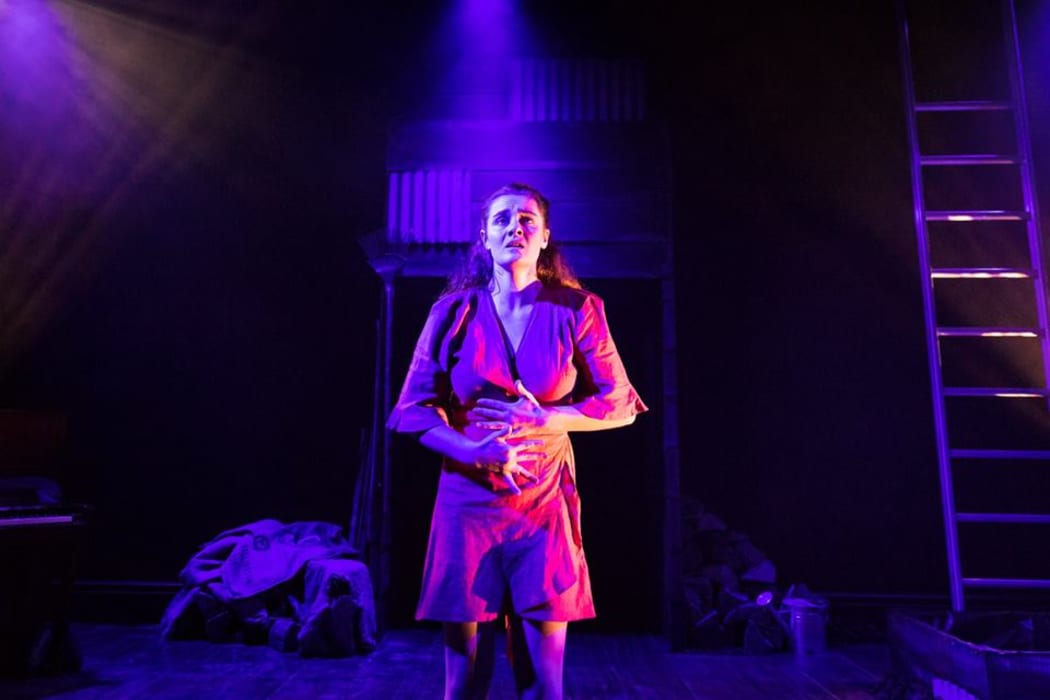
Jess Old as Wendla in Spring Awakening Photo: Facebook - Witch
Destigmatising what musical theatre is will also help this. “There is still a stigma … in this country - that [musical theatre] is cheesy, frothy and silly,” he says. “Musical theatre is a huge genre, and is increasingly being used to tell important stories and tackle difficult topics.”
Investing in musical theatre, its crews and companies, is worth it, concludes Ben Emerson. “The risk will turn into reward soon enough if it's a genuine investment.”

